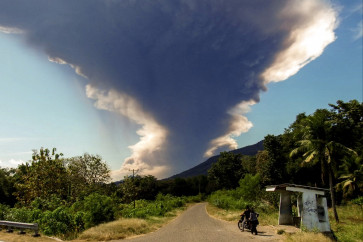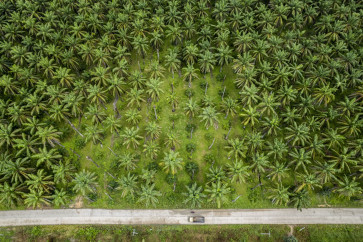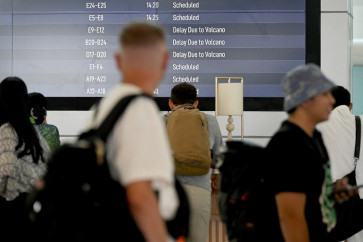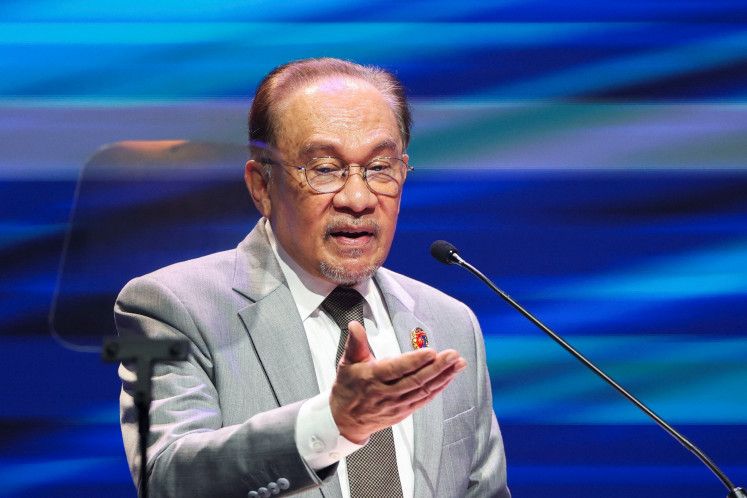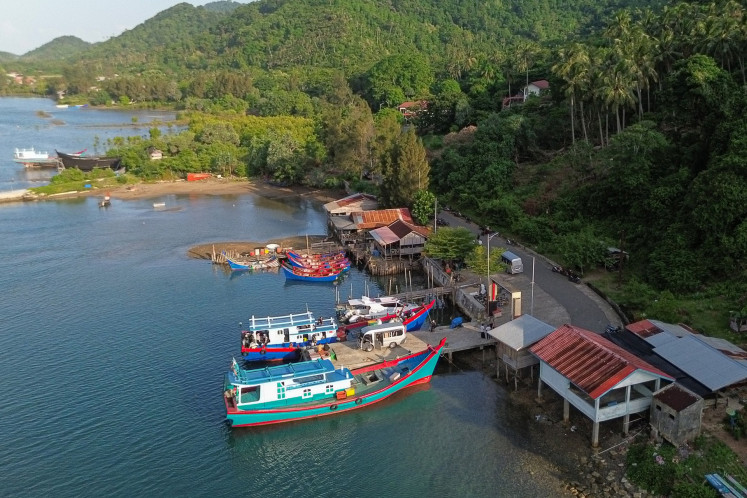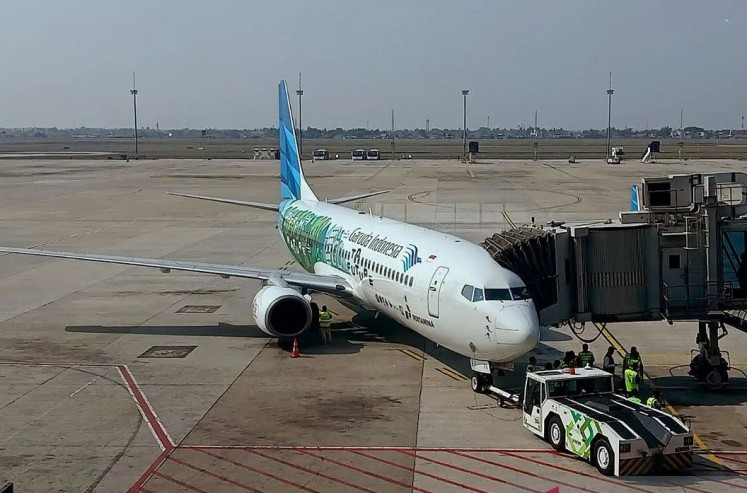Popular Reads
Top Results
Can't find what you're looking for?
View all search resultsPopular Reads
Top Results
Can't find what you're looking for?
View all search resultsPolice ‘enemy of free press’ in Indonesia: Watchdog
The number of incidents of violence against journalists committed by police officers in 2019 has increased even though the overall number of attacks against the media generally has decreased, according to the annual report of the Alliance of Independent Journalists (AJI)
Change text size
Gift Premium Articles
to Anyone
T
he number of incidents of violence against journalists committed by police officers in 2019 has increased even though the overall number of attacks against the media generally has decreased, according to the annual report of the Alliance of Independent Journalists (AJI).
The report indicates a rising trend of violations against the free press committed by law enforcers in Indonesia.
Based on the report, 53 cases of violence against journalists were recorded in 2019 with 30 of them involving police officers.
The record shows a significant increase of police officers involved in the violence compared with last year’s 16 cases of police violence against journalist among the 64 reported cases of violence against the press.
“The police are the enemy of the free press in Indonesia because they are trying to silence us [journalists]. Until now, no police officer who has allegedly been involved in violence against journalists has been charged with a crime,” said AJI chairman Abdul Manan, at the press conference of the organization’s year-end report in Jakarta on Dec. 23.
Manan expressed his concerns over the situation because police officers, who are expected to uphold the law, were instead breaking it.
The AJI noted that most violence involving police officers happened during mass rallies after the presidential election result came out on May 20 to 21 at the Elections Supervisory Agency (Bawaslu) in Central Jakarta and during student protests against the planned revision the Criminal Code (KUHP) on Sept. 23 to 30.
The pattern of the violence against members of the media was triggered by the same cause and situation: a journalist filmed one or two police officers who were committing an act of violence against protesters. The journalist was then intimidated by the police officers and was forced to delete all the videos.
According to the AJI report, a police officer grabbed and smashed the phone of a female journalist from a local media company while she was filming a video of the situation around the House of Representative on Sept. 25 during a student protest.
The violence against journalists was not limited to cases in Jakarta as the AJI also reported police aggression against journalists in Makassar, South Sulawesi, during a student protest on Sept. 24. Three journalists from local media companies were beaten by police officers even though they showed press IDs.
The red report on violence against the press also highlighted the restrictions on media access during the May 21 protest in Jakarta, which descended into a riot and the internet block in West Papua and Papua in August and September. The restrictions and the block were seen as obstacles to journalists delivering accurate information to the public.
The AJI also noted 10 problematic articles in the planned revision of the KUHP whose interpretation could lead to criminalization of journalists. Among the problematic articles are Article 241 on insulting the government, Article 219 on defamation of the president and vice president, Article 247 on incitement against the government and Article 305 on blasphemy.
Another problematic regulation is the 2008 Electronic Information and Transactions (ITE) Law, which was used in 2018 against a journalist who wrote about alleged plagiarism by a university chancellor in Semarang, Central Java.
The AJI’s report pointed out that despite the existence of the Press Law, journalists were liable to be charged under the ITE Law.
The growing cases of digital abuse against journalist was also noted in 2019 and was also part of the AJI’s concern. Online intimidation and doxing were mostly targeted at journalists who wrote about Papua-related issues. The AJI cited two major digital attacks against journalists in 2019, which involved Victor Mambor and Febriana Firdaus.
Indonesia was placed in 124th position on the 2019 World Press Freedom Index by Reporters Without Borders (RSF) with a global score of 36.77. Indonesia has held this position for three years in a row. Indicating the stagnant status, Manan claimed that law enforcement, the political situation and media ownership in Indonesia had not shown any improvement.
“We should be anxious about the current government. The President [Joko “Jokowi” Widodo] said many things about economic development, but he clearly left out human rights issues in his inauguration speech,” Manan added.
Among Southeast Asian countries, Indonesia was ahead of the Philippines (134), Thailand (136) and Singapore (151). However, the barometer put Indonesia behind Malaysia, which was in 123rd position with a score of 36.77 and far behind East Timor, which was placed in 84th position with a score of 29.93.
“The media in Indonesia is owned and overpowered by approximately 10 big corporations or fewer. The conflict of interest is clearly shown during election and we can clearly see the political alignment of the media. This is not good. It destroys the credibility of a free press,” AJI secretary-general Revolusi Riza said. (trn)


